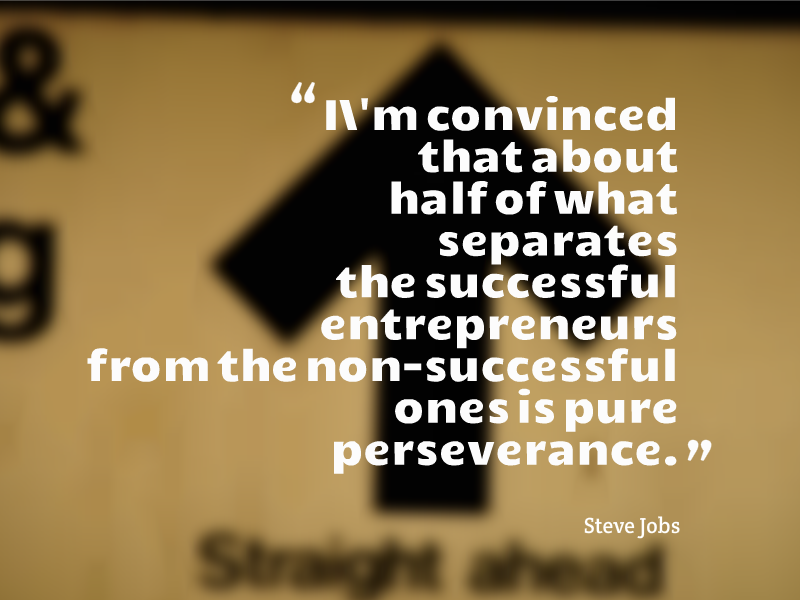Making the transition from full-time employee to full-time entrepreneur has to be one of the toughest decisions you will ever face. You need to plan this strategy carefully and time it correctly because it will have a huge impact on your startup. If you transition at the wrong time – or without enough leeway – you could run out of time or money before your startup has had a chance to succeed. I faced this very choice about 10 years ago. I had been working the typical career path but had also been growing my own company – Commercial Capital LLC – on the side. Although my business was growing, it was not producing enough income to replace my salary. As you can imagine, it’s very difficult to grow a company if you can only work after 6pm. And meeting with clients and investors becomes a real challenge. In other words, I was stuck. I liked the safety of a salary, but I wanted to grow my company. After lots of soul-searching, I decided to make the jump and become an entrepreneur full time. It took eight months from the time I decided to leave my job to the time I finally jumped ship. I planned everything carefully.
Step 1: Budget Your Expenses
My first step was to examine my expenses and create a budget. The easiest way to do this is to track and categorize your expenses for a month or two. Fortunately, I’ve always been a big fan of Quicken and pay most of my bills with a credit or debit card. Thanks to this setup, it was very easy for me to download all my spending data and have Quicken categorize it. Once you have this information, look at your expenses and determine how much you will need to cover things like food, clothing, and rent. Entrepreneurs are often tempted to forgo expensive items like health insurance. I had to wrestle with this temptation myself. If you are young, why should you spend a lot of money paying for something that you may not need? The answer is simple: if you develop a serious health problem and don’t have health insurance, you’ll go bankrupt. A major health expense can put you out of business.
Step 2: Build a Reserve – Six Months to a Year
Initially, I had assumed that I’d be able to replace my income in about three to six months. Being conservative, however, I decided to build a reserve sufficient to last one year. I am fortunate to have taken this approach because it took me a little over a year to replace my salary. I had been overly optimistic in my assumptions – a critical mistake most entrepreneurs make. I was also fortunate to have a working spouse. She certainly deserves a lot of credit for keeping the household afloat while I pursued my entrepreneurial dream. In fact, I know other entrepreneurs who also relied on their spouses when launching their ventures.
Step 3: Determine if You are Ready to Make the Jump
You have created a realistic budget and built a reserve. Now you are ready to give your business your full attention. Are you ready to jump? The choice is personal. In my case, I made the jump once everything was lined up correctly and the business was producing revenue.
Step 4: Resign with Grace and Elegance
Entrepreneurs tend to quit their jobs by telling their bosses exactly how they feel about them. Some go as far as expressing anger or resentment towards their now-former boss. The bottom line: it’s a bad move, it’s unprofessional, and it burns bridges. So don’t do it. Instead, write a letter of resignation in which you thank your boss for the opportunity and wish them well. Help minimize the impact of your resignation and do your best to leave on good terms. This strategy may be very helpful if you need a job in the future or if you need your former boss to write a recommendation letter.
My Last Suggestion: Keep it Private
There was a time when I was working and running a business simultaneously. I did my best to keep both activities separate. And as far as I can tell, not a single person from my prior company knew I had been running a business when I resigned. Actually, most did not find out I was an entrepreneur until years later when they saw my LinkedIn profile. While it may feel good to tell your boss and co-workers you are leaving to start a company, it can also backfire. Some may resent you, feeling that you did not give your job 100% of your focus. It’s best to keep your business to yourself. If they find out, let them do so by their own means.
Marco Terry is the managing director of Commercial Capital LLC, a company that provides financing to businesses with cash flow problems. He also maintains an entrepreneurship blog called Factor-This! Image Credit: tweakyourbiz.com





